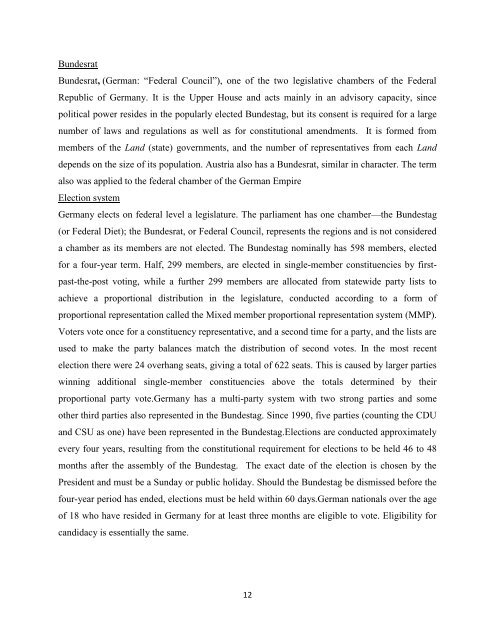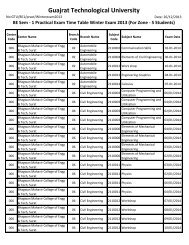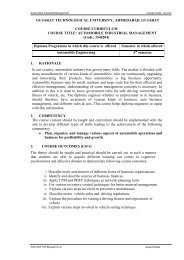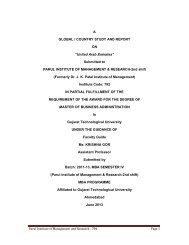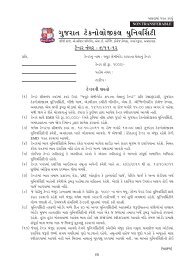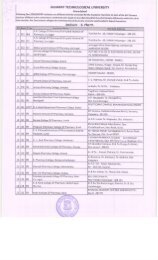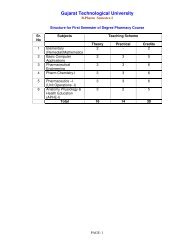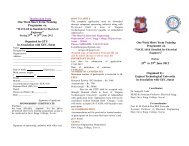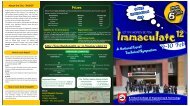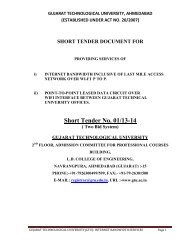751-Sabar Institute Of Management, Tajpur - Gujarat Technological ...
751-Sabar Institute Of Management, Tajpur - Gujarat Technological ...
751-Sabar Institute Of Management, Tajpur - Gujarat Technological ...
Create successful ePaper yourself
Turn your PDF publications into a flip-book with our unique Google optimized e-Paper software.
Bundesrat<br />
Bundesrat, (German: “Federal Council”), one of the two legislative chambers of the Federal<br />
Republic of Germany. It is the Upper House and acts mainly in an advisory capacity, since<br />
political power resides in the popularly elected Bundestag, but its consent is required for a large<br />
number of laws and regulations as well as for constitutional amendments. It is formed from<br />
members of the Land (state) governments, and the number of representatives from each Land<br />
depends on the size of its population. Austria also has a Bundesrat, similar in character. The term<br />
also was applied to the federal chamber of the German Empire<br />
Election system<br />
Germany elects on federal level a legislature. The parliament has one chamber—the Bundestag<br />
(or Federal Diet); the Bundesrat, or Federal Council, represents the regions and is not considered<br />
a chamber as its members are not elected. The Bundestag nominally has 598 members, elected<br />
for a four-year term. Half, 299 members, are elected in single-member constituencies by firstpast-the-post<br />
voting, while a further 299 members are allocated from statewide party lists to<br />
achieve a proportional distribution in the legislature, conducted according to a form of<br />
proportional representation called the Mixed member proportional representation system (MMP).<br />
Voters vote once for a constituency representative, and a second time for a party, and the lists are<br />
used to make the party balances match the distribution of second votes. In the most recent<br />
election there were 24 overhang seats, giving a total of 622 seats. This is caused by larger parties<br />
winning additional single-member constituencies above the totals determined by their<br />
proportional party vote.Germany has a multi-party system with two strong parties and some<br />
other third parties also represented in the Bundestag. Since 1990, five parties (counting the CDU<br />
and CSU as one) have been represented in the Bundestag.Elections are conducted approximately<br />
every four years, resulting from the constitutional requirement for elections to be held 46 to 48<br />
months after the assembly of the Bundestag. The exact date of the election is chosen by the<br />
President and must be a Sunday or public holiday. Should the Bundestag be dismissed before the<br />
four-year period has ended, elections must be held within 60 days.German nationals over the age<br />
of 18 who have resided in Germany for at least three months are eligible to vote. Eligibility for<br />
candidacy is essentially the same.<br />
12


